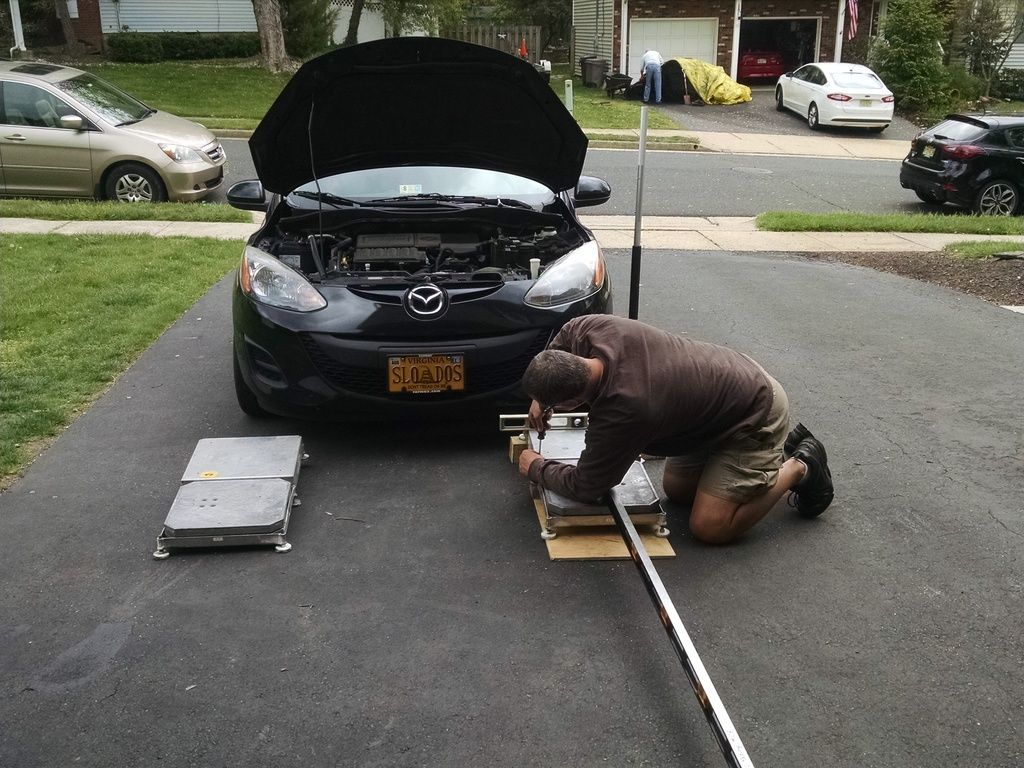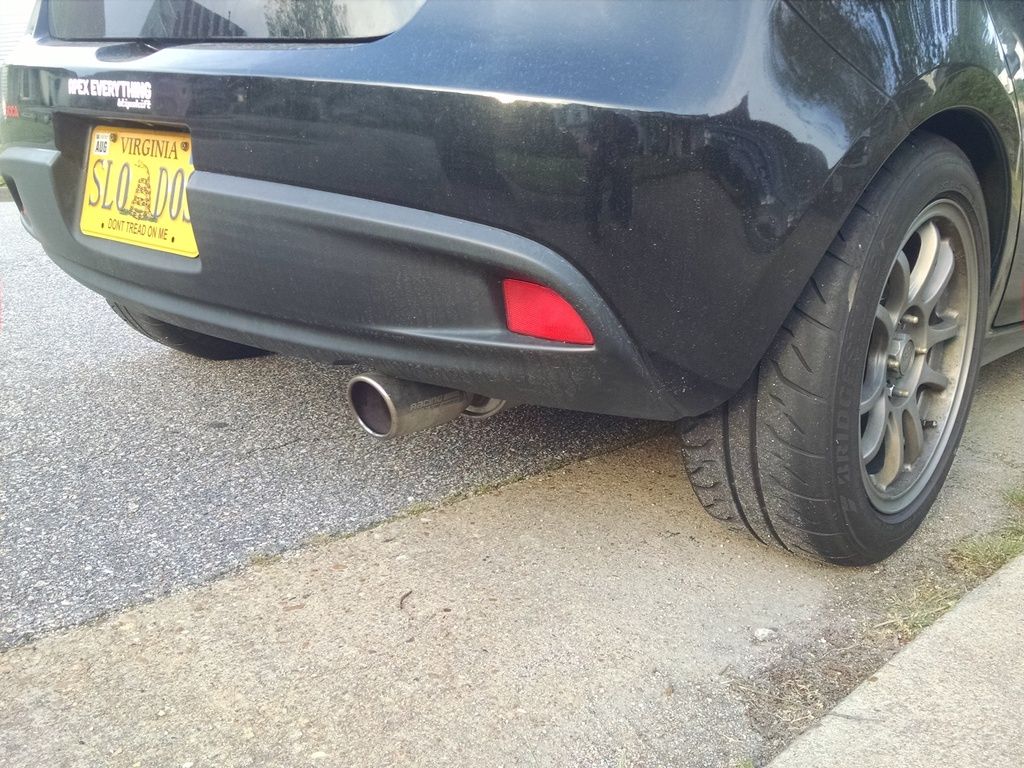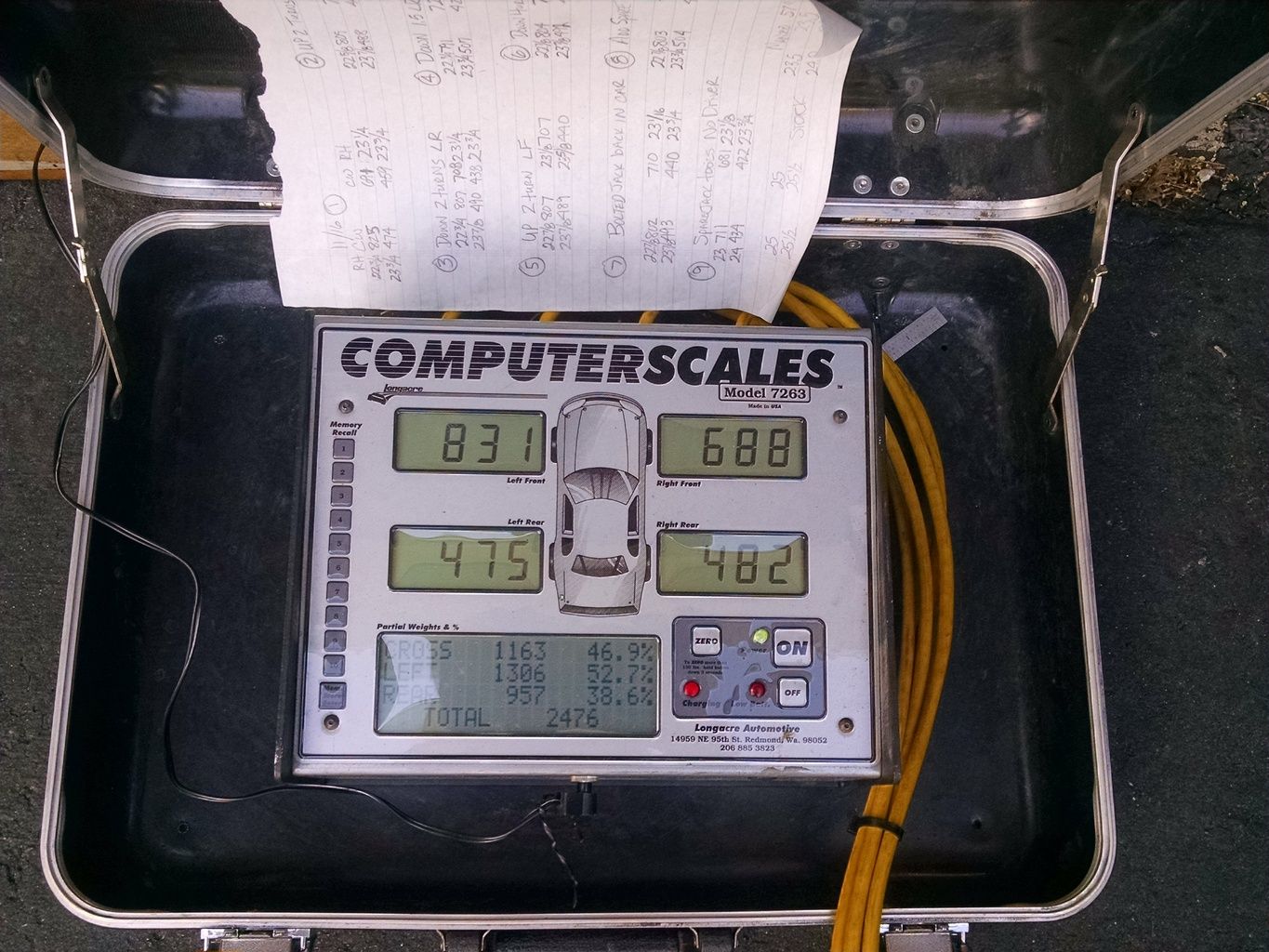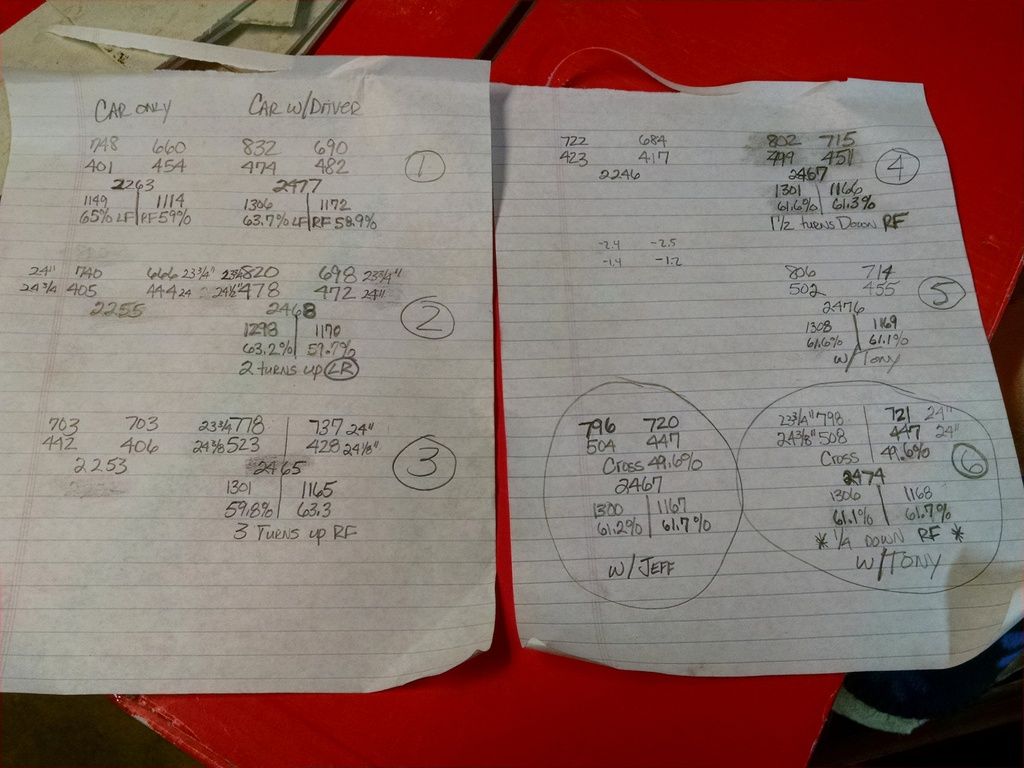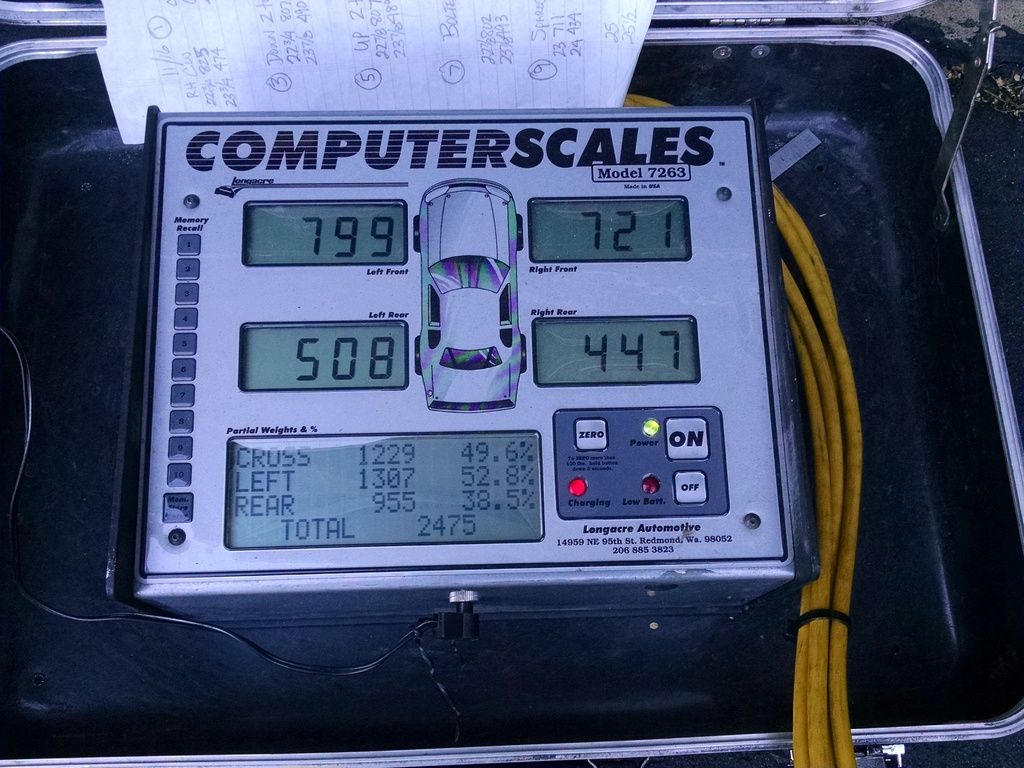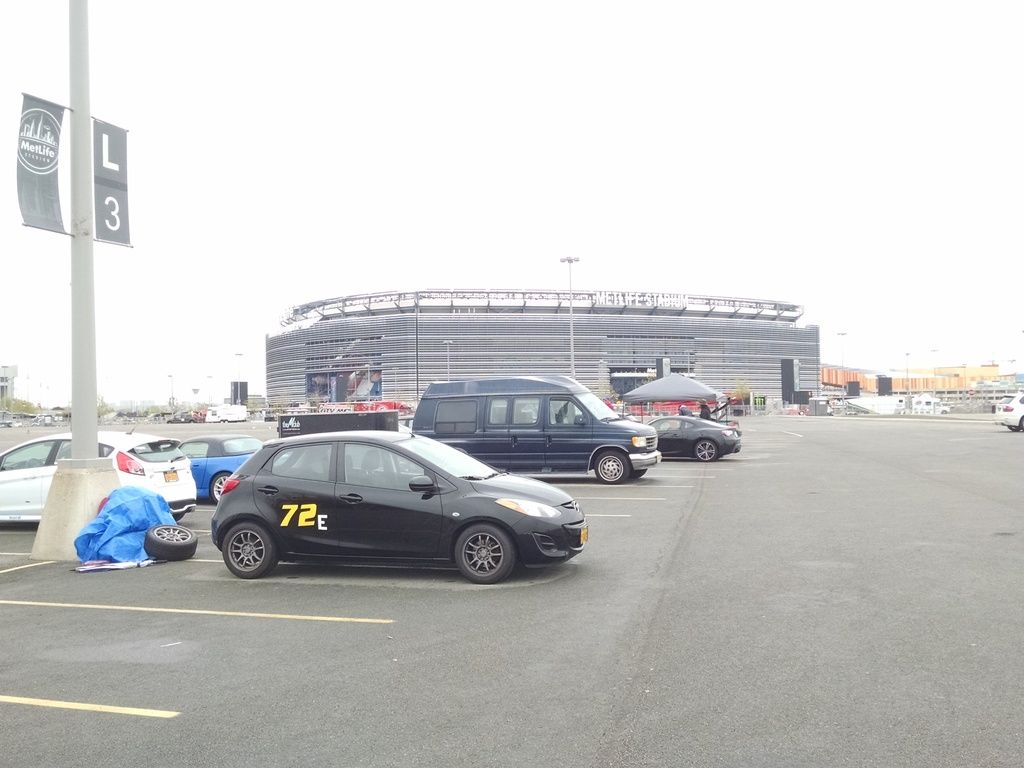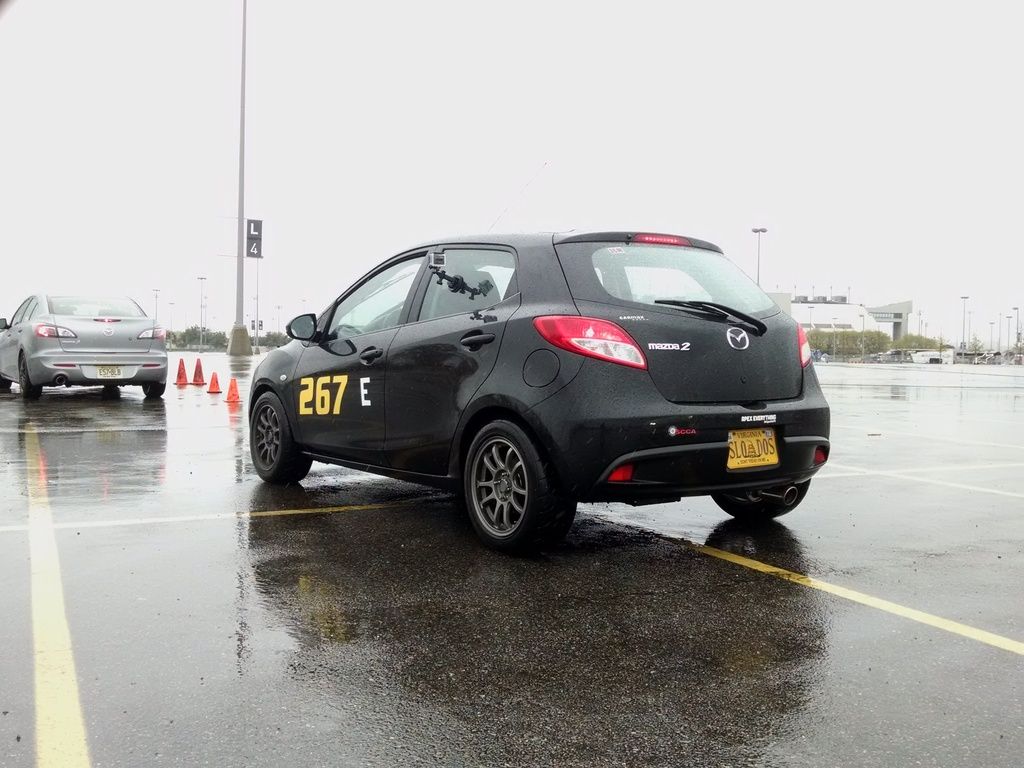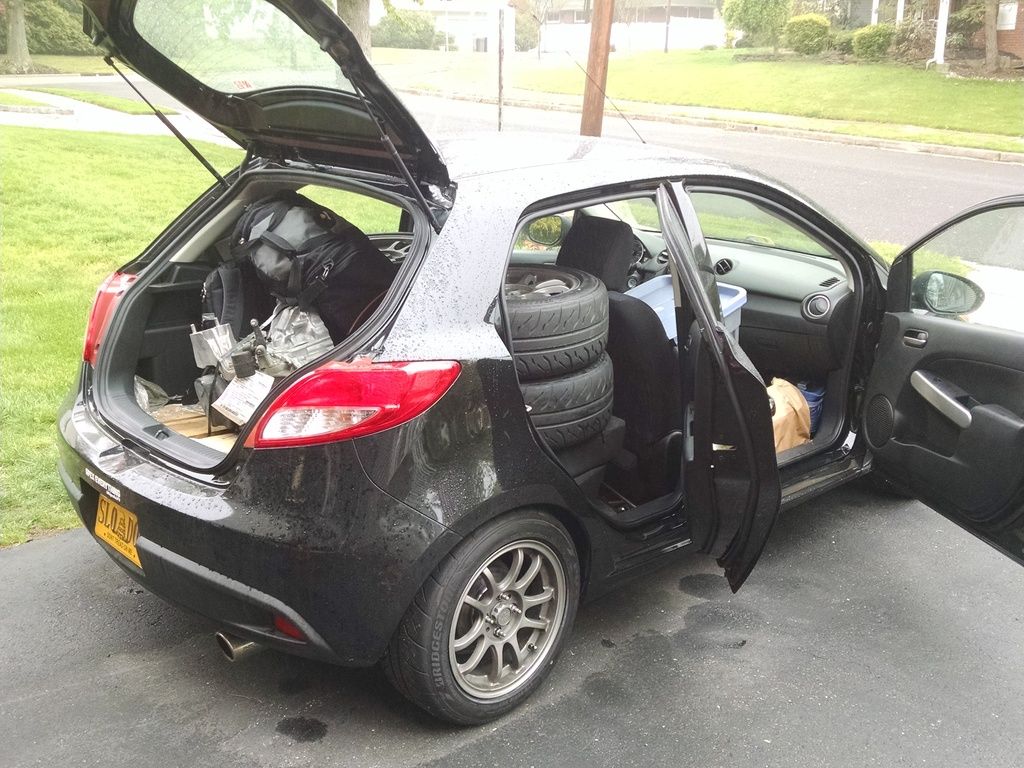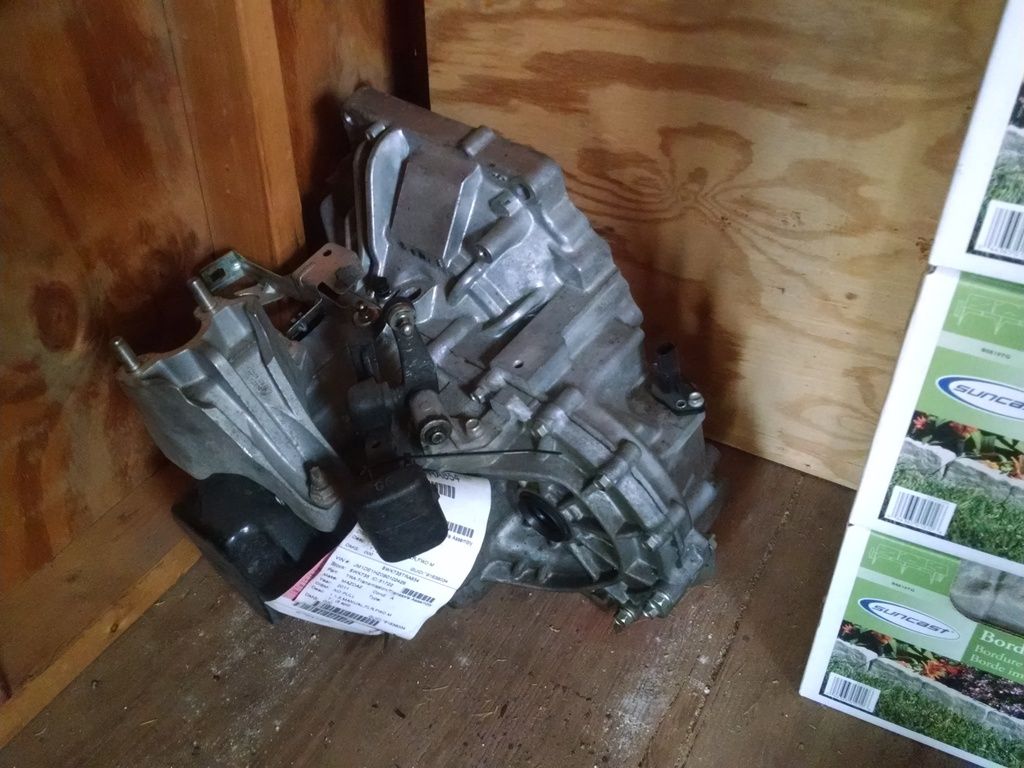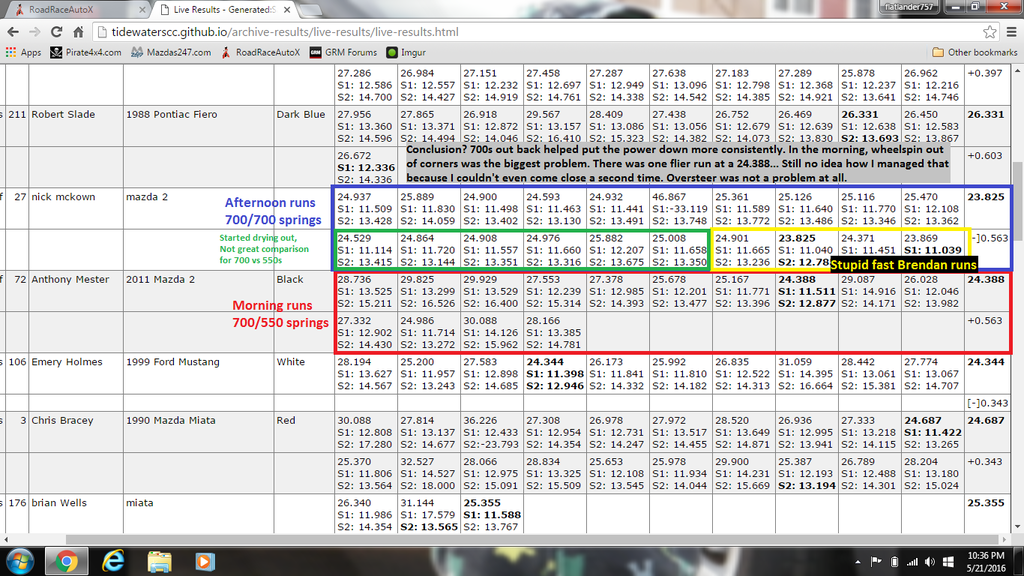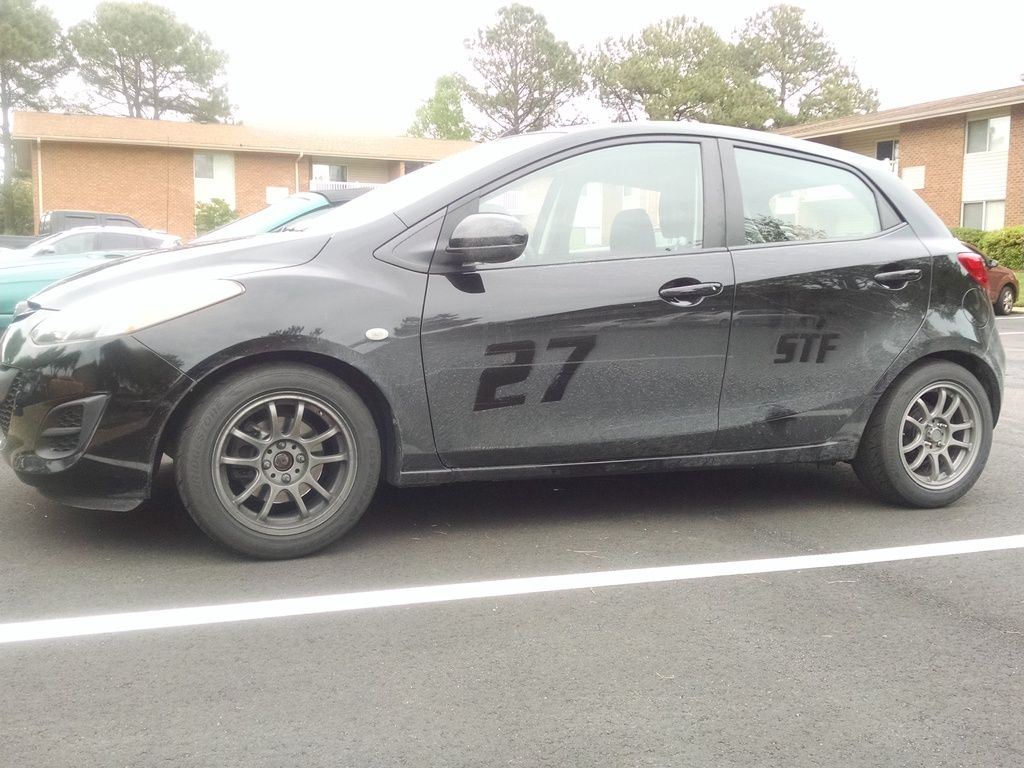Our next event isn't until June 19th, again at ACU4. Hopefully dry. 
INFO HERE IF YOU WANT TO COME OUT NOTE: You MUST pre-register to come out or else you will not be let on base.
In the meantime, I also did a write-up on my Carbotech AX6 pads:
Well I've taken way longer than I originally planned before writing a review, but I've put about 5k miles on my Carbotech AX6 pads, with 44 auto-x runs(15 of which were from codrivers).
I'll add just to note that I also installed DDMWorks stainless braided brake lines at the same time as these. Also they went on with brand new Centric Premium rotors.
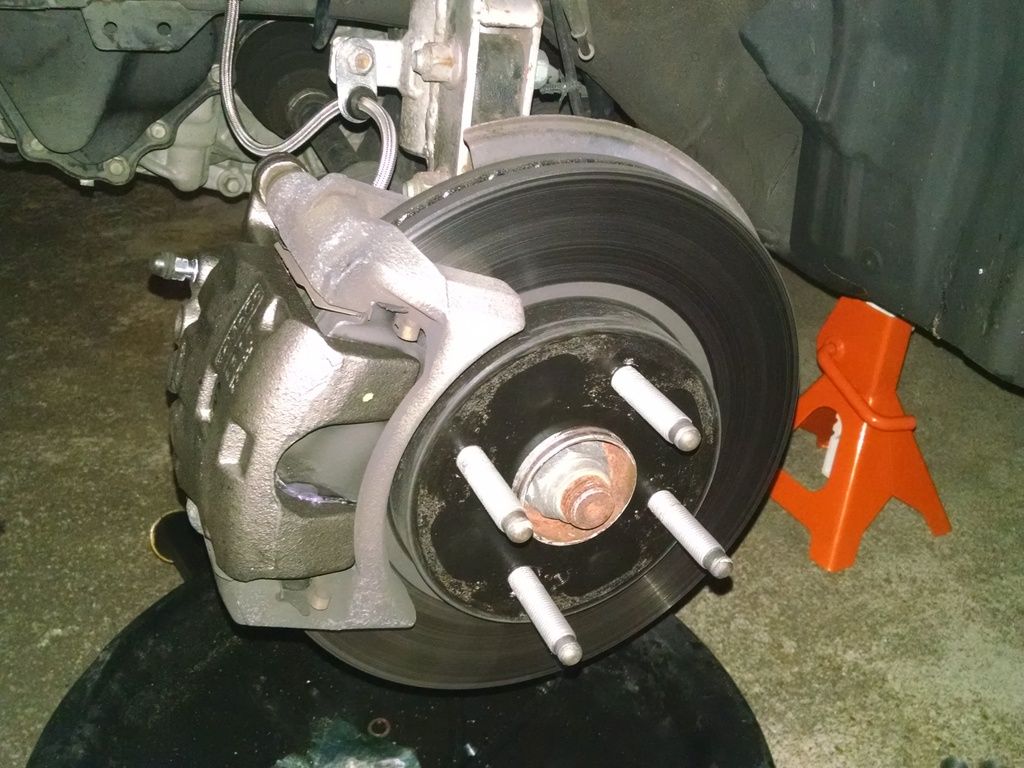
So I installed them and my initial impression on the first couple stops leaving my street are "hmmm feel pretty good."
When I came toward the stop sign leaving the neighborhood, I gently tapped the brakes and WHOOOOAAAA!! The car just instantly stopped. It was pretty close to feeling like a light switch. So I adjusted my braking/driving habits accordingly. I've got to be honest that while they were acting like this, I was thinking to myself "man I hope these weren't a $160 mistake."
I was getting into the ABS just coming to stop lights. It took physical restraint to NOT bring the car to a complete stop early. Once they get a bit of heat in them they are the equivalent of throwing an anchor out the window... engaging ABS along the way. Not exactly good.
I drove the car for 4 more days, so about 400 miles were put on them, I got used to the pedal, but was still hard to modulate without looking like an idiot.
One day sitting in traffic looking at my car's reflection on the car behind me through the rearview mirror, I noticed that the brake lights were not coming on until about 1/2in of travel or so(I'd estimate the pads started to bite about 3/8in of travel or so), and I didn't want to start actually slowing down BEFORE the lights were coming on, so I decided to adjust the brake switch up one click. I did this by pressing the brake pedal down, and putting a -thin- screwdriver between the brake switch and the pedal, then let the pedal up and allowed it to "self adjust" while the screwdriver was taking up a bit more room.
I tested the lights out, they come on a bit sooner now... awesome.
Take it on a test drive. Woah! Brake pedal feels much more mellowed out. You can modulate it exceptionally easily now. Hard stopping is still just like before, stops you in a freaking hurry. If not now even better. It felt like the brake bias was shifted rearwards some under most conditions.
It felt like the stock brakes under about 70% pedal effort, but push harder and it's like the stock pads turned up to 12. It's exactly what I was looking for!
So why did this happen?
Electronic brake force distribution. We don't have a mechanical proportioning valve. EBD works by starting out with 100%(or very close to it) rear brake bias with the front pressure limited to some lesser percent.
As you start slowing down, the HCU(hydraulic control unit as Mazda calls it, or ABS module) monitors the wheel speed sensors, various other sensors(assuming the g sensors built into the SRS module) and detects the rate of deceleration. Once it gets to a certain threshold, the front brake force starts ramping up/getting added more and more bias the harder it slows down. There is also a point at which the rear brake force stops increasing and pressure is held constant.
This is what I learned based on reading a Ford Fiesta factory service manual. Mazda does not publish anything really useful, but this is a pretty basic concept among many manufacturers. It can also incorporate yaw rate and steering angle sensors, which is likely since we have DSC.
Now why would the brake light switch have that much effect on it?
Especially since it's nothing more than a simple on/off switch(not like a GM brake pedal pressure sensor where it's variable depending on pressure applied)?
To be honest, I can't tell you the exact reason, but doing an A-B-A test tonight, I confirmed that is what caused the change.
Since I pressed the brake switch self adjustment in one extra click to get the lights to engage sooner, I taped a penny to the pedal bracket where the brake switch touches to simulate about where it was previously adjusted(make brake lights come on a bit later). After this it went back to being super touchy sensitive on initial bite. Took the penny away, back to normal feeling brakes.
If I had to wager a guess... it's one of the following reasons:
-The EBD internal black magic doesn't start moving brake bias around until it sees that the brake pedal is pressed(via the brake switch)... so since my front pads are so aggressive so early on in pedal travel, the front was starting to bite before the HCU even knows the brakes are being pressed.
-The pads were biting RIGHT before the brake switch was pressed, so when I started pressing the pedal it WAS doing it's rear-bias thing like it's supposed to, with just a bit of front bite, then right at the brake light switch point the bite of the front pads are slowing the car down just fast
enough that it allows more pressure at the front(so biased more forward), and due to the nature of the pads they bite harder, more bias, bite harder
yet, etc etc.
I think this may be something worth playing with, but am not sure if benefits are to be had with stock pads or not. I'm taming some relatively aggressive pads so this may well be unique to my situation. It's definitely worth experimenting with, but know that you should have a good switch ready to go. The switch is one time use so be aware you can screw it up.
Now back to my impression of the pads:
I did the bedding in process, when they get hot they squeal. It's hard to describe, but it's not the same obnoxious shrill squeal when someone has the pad squeal indicator rubbing the rotor(or anything near as obnoxious as Hawk HP+ on a Camaro), but it will certainly let itself be known.
When you get them even hotter, they start changing in tone, sometimes it's a squeal similar to holding a cat by it's sides and rubbing it claws out against a chalkboard(mostly light braking), and sometimes it sounds like straight up metal on metal grinding(harder braking).90% of the time it's just a light almost whistle-like sound for just normal driving.
I have been doing 85 to 100 miles daily for a while now. I don't generally hear a peep from them when it's below about 60F, and they get louder from there. Mostly highway driving you won't hear a whole lot except when you slow down some under light pedal pressure.
I have had an occasion here and there where I'll get a "squeak squeak squeak" just driving down the road, not even touching the brakes. It'll change in tone with left and right turns or go away when you tap the brakes. I've heard others with this happen as well. It's always been at lower speeds like 25-35mph. It's done it like 3 times for less than 20 seconds each time over the course of nearly 5000 miles to get an idea of how rare this happens(in my experience). EDIT: After about 6500+ mi and multiple autocrosses, they now do this much more often, see my update post below.
Now for autocross... they are freaking AWESOME. They have about the same amount of initial bite as the stock pads(honestly could be a bit more, or a bit less, it's too hard to truly tell), are super easy to modulate, and when you really need to stop, you give it more pressure and it stops like
you're throwing an anchor out the window in a very controlled way.
Jeff(user jasyatz) codrive my car at an event recently and this was probably one of his favorite attributes of my car. Here's a quote from him:
jasyatz said:
And holy crap the brakes are fantastic! Like plant your face on the steering wheel awesome.
They're pretty much exactly what I was looking for(after doing the brake switch adjustment) performance and driveability wise.
The only downside... they dust like you wouldn't believe. The dust comes off incredibly easily IF you get it off before it rains.
After 2 days(200mi of all highway driving and very minimal city driving) my wheels are completely caked in dust. The awesome thing is if you take just a garden hose to the wheels, the dust literally about 95% of it just flows right off. The not so awesome thing is when it rains, it flows somewhat off the wheel, but dries back on in splotches and looks like complete crap.
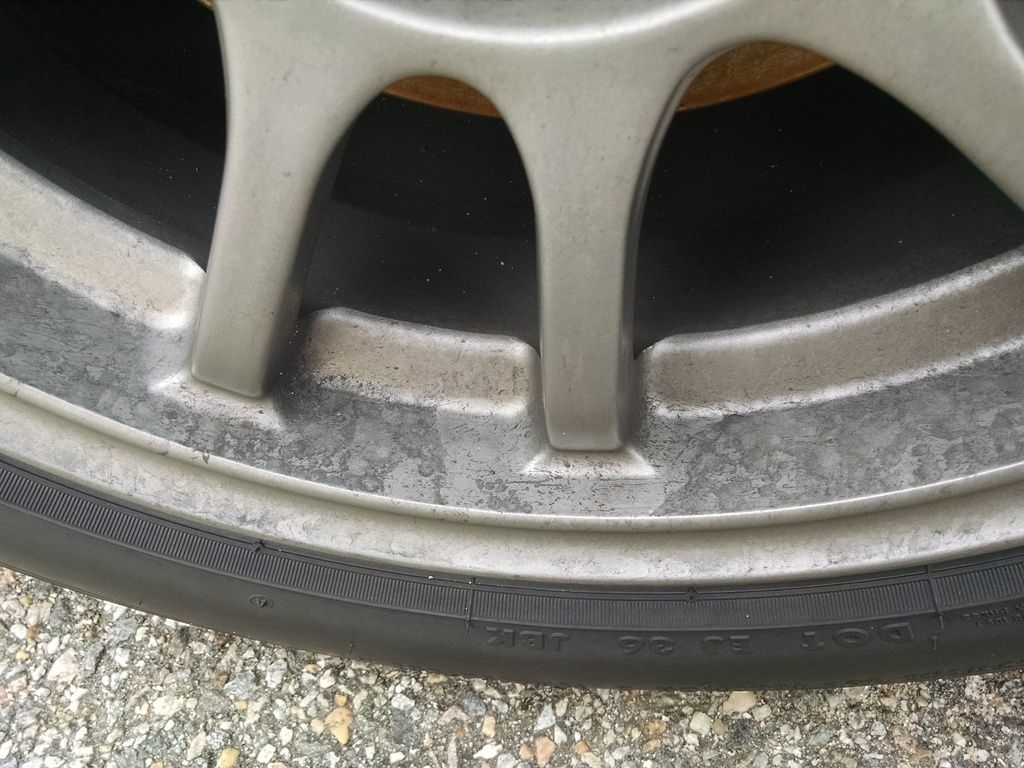
When it does this over the course of 2 or 3 weeks multiple times and you have been lazy about cleaning the car/wheels, it requires scrubbing and doesn't come off quite as easily. There are some tiny speckled spots in the crevices of the wheels where it's pretty hard to remove. Still not as awful as HP+ dust FROM WHAT I'VE HEARD. I know they have a reputation of being corrosive to the wheel and being impossible to remove. FWIW I suspect the little speckles of crap that require more time to remove may be bits of the rotor and not the pad, though they are not brown/rust colored so that may not be it. Just speculation.
So in a nutshell I'd give them the following ratings, 1 being poor or bad, 10 being great or desirable, etc.
[B]Initial bite/feel: 10
Full pressure stopping power: 9
Ease of modulation: 9
Noise(normal conditions): 3
Dust(amount): 2
Dust(ease of cleaning): 9 if it has not been rained on and de-dried... 3 if it's been rained on a couple times. You will NOT get them clean easily if so.
[/B]
They cost right about $160 from SOLO PERFORMANCE
The biggest question is would I buy them again?
Absolutely. They fit my needs, the dust doesn't bother me [I]too much[/I], nor does the noise. I may try their less aggressive 1521 "bobcat" compound the next time around though.
Oh yeah. One last cool thing about them is they throw sparks at night time
under HARD braking :)
CARBOTECH AX6 PADS SPARKING AT NIGHT TIME
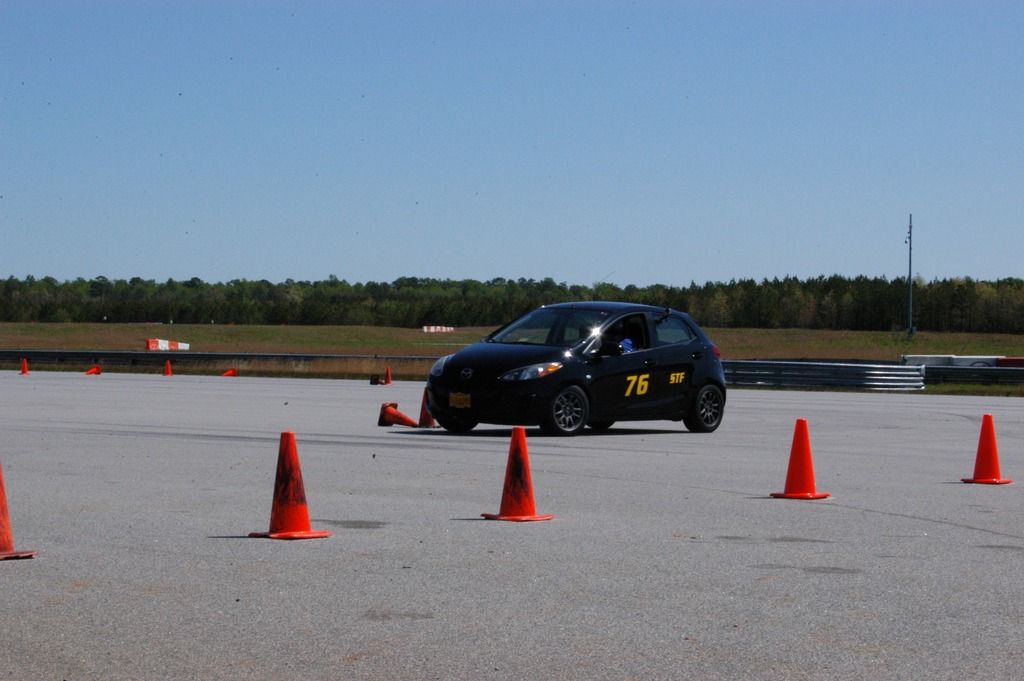
![]()









